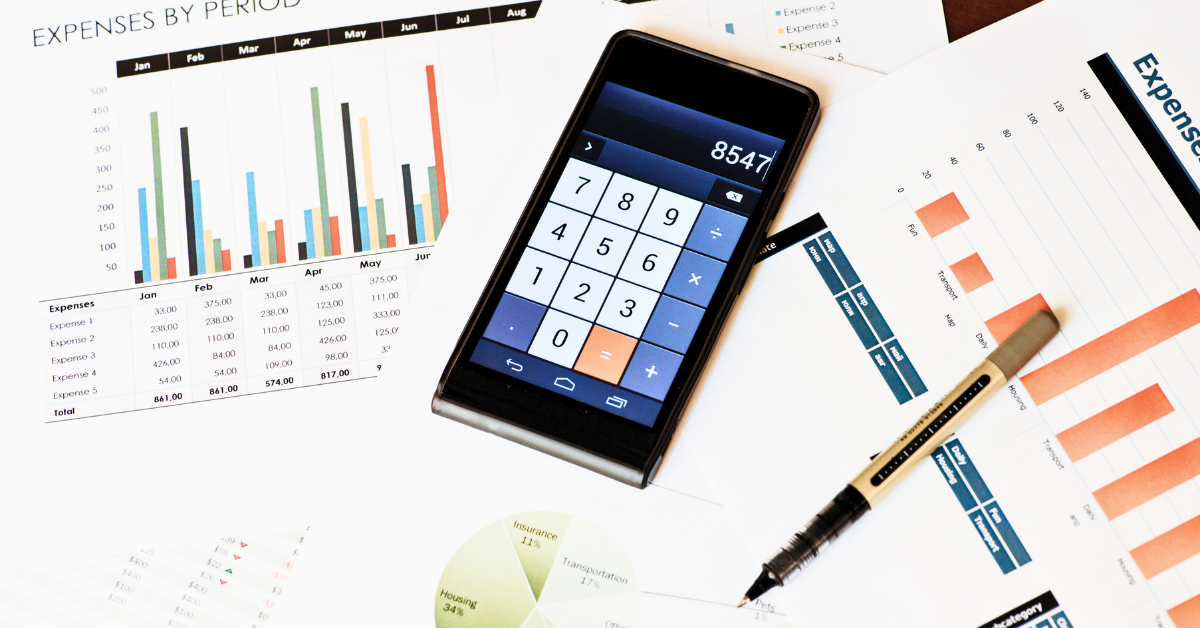When I first started freelancing, I was obsessed with one thing: earning more. I’d take on multiple clients, chase deadlines, and hustle hard to hit my monthly income goals. But over time, I realized that freelancing isn’t just about making money but also about managing it well through personal finance.
It took a few financial mistakes to learn that lesson. So if you’re just starting out or still finding your rhythm as a freelancer, let me save you some stress: learning personal finance is not only optional, but essential.
Here’s why.
The Biggest Financial Challenges Freelancers Face
Freelancing gives you freedom, but it also puts the full weight of financial responsibility on your shoulders. Unlike traditional employees, we don’t have the luxury of stable paychecks, company benefits, or someone else doing our taxes.
Here are just some of the unique challenges we face:
1. Inconsistent Income
Some months are good. Others? Not so much. Freelancers often deal with feast-or-famine cycles, which can make it hard to plan, save, or even breathe easy. Without a system, this unpredictability becomes overwhelming.
2. No Employer Benefits
No SSS contributions. No health insurance. No 13th-month pay. As freelancers, we have to build our own safety nets, whether that’s a healthcare plan, a retirement fund, or an emergency savings account.
3. Self-Managed Taxes
Paying taxes as a freelancer in the Philippines isn’t impossible, but it is confusing at first. There’s paperwork, deadlines, and percentages to figure out. If you don’t prepare for it, tax season can be a nightmare and an expensive one.
4. Disruptions from Natural Disasters
Living in the Philippines means we’re prone to typhoons, floods, brownouts, and internet issues. If your area gets hit, work stops. And unlike regular employees, we don’t get paid if we don’t deliver. It’s not just lost income, but it can mean lost clients, too. That’s why having a solid financial cushion isn’t optional, but a must.
Why Personal Finance Isn’t Optional for Freelancers
If you only focus on earning and ignore the managing, you’ll always feel like you’re starting from scratch. You’ll hit income milestones but wonder where all your money went. Worse, you might burn out from the stress of living project to project with no safety net.
Learning personal finance helps you:
- Handle slow months without panic
- Grow your savings even on variable income
- Pay your contributions and taxes without scrambling
- Recover from emergencies and disruptions
- Build real financial security even without a regular job
It’s not about being perfect with money. It’s about building habits that make your freelance life sustainable long-term.
Simple First Steps to Take Control of Your Money
You don’t need to be a finance expert to start managing your money well. Here are a few small steps that made a big difference in my freelance journey:
1. Track Everything You Earn and Spend
This is the foundation of financial clarity. A monthly budget is a necessity for any freelancer. Use an app, Google Sheets, or even a notebook. When you know where your money’s going, you can make better choices.
2. Build an Emergency Fund
Aim to save at least 3–6 months of basic expenses. This is your buffer for slow seasons, client delays, or typhoons that knock out your internet for days. I personally keep mine in a high-interest digital bank so it’s accessible but still growing.
3. Separate Business and Personal Finances
All my freelance income lands in one account, which I treat as my “freelance pot.” I only transfer a fixed amount each month to my personal expenses account. This helps me stick to a budget and treat my freelance income like a business, not a free-for-all. It also makes it easier to see how much is left for saving, investing, or other goals.
4. Allocate for Contributions and Taxes
For government contributions and taxes, I treat them like fixed monthly bills. I log them into my tracker and make sure they’re scheduled and paid regularly, so I don’t get surprised come tax season.
My Tita Thoughts
Freelancing can give you freedom, but personal finance gives you peace of mind. The sooner you learn to manage your money, the sooner you’ll feel steady, not just successful.
Start small. Track your income. Build your buffer. And treat your freelance income like the real business that it is.
Have a question or just want to connect? Feel free to send me an email or follow along on Instagram @virtualtita. Let’s talk freelancing, personal finance, or anything in between. And if you’d like tips and stories delivered straight to your inbox, sign up for the newsletter below.

